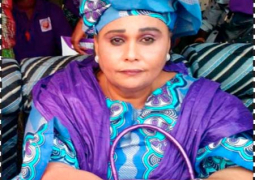Educational Research Network for
The research validation that targeted policymakers and stakeholders was held on 9 March 2011 at the ERNWACA headquarters at Mile 7 in Bakau aimed at exploring the feasibility of introducing TVET, as well as livelihood skills in Madrasahs (Islamic School) to support the development of an innovative curriculum.
Speaking at the validation exercise, Mr Makaireh A. Njie, national coordinator of ERNWACA Gambia chapter, said that three years ago UNESCO contracted ERNWACA Regional chapters to conduct a research at the Madrasahs to assist in improving their curriculum.
He pointed out that UNESCO was interested in a case study to look at investigating feasibility of incorporating TVET and livelihood skills in the Madrasah curriculum.
Mr Njie said that ERNWACA Gambia has worked with the
He added that they also worked with the government and the NGOs to disseminate findings of research to policymakers and stakeholders.
He commended partners such as the Gambia Department of State for Education (DOSA), Economic and Monetary for West Africa (UEMOA), the
In her presentation on findings of the research, assistance researcher Awa Sillah of the
She adduced that officials of AMANAH, Ministry for Basic and secondary Education, National Training Authority were also among those targeted for their findings.
According Ms Sillah, the specific objective of the research was to investigate the feasibility of implementing government’s policy with regard to introducing life skills and TVET subjects in Madrasah curriculum to obtain further clarifications and insights about relevant substantive issues, such as availability of human, material and financial resources.
She mentioned that during an exercise undertook in nine schools covered teachers and heads of schools and eight madrasah proprietors, it was clear that 78% of all the respondents had no idea about TVET and live skills, whilst questionnaires received from education-related institutions like AMAHAH and the curriculum unit of the Ministry of Basic and Secondary Education revealed otherwise.
According to her, the outcome of the research was to help decision-makers to take informed measures in a bid to introduce and enhance TVET and Life Skills in the Madrasah education sector and also to identify the various elements needed to be included in the programme as well as the training and capacity needs of Madrasah so as to set graduates into the job market.



